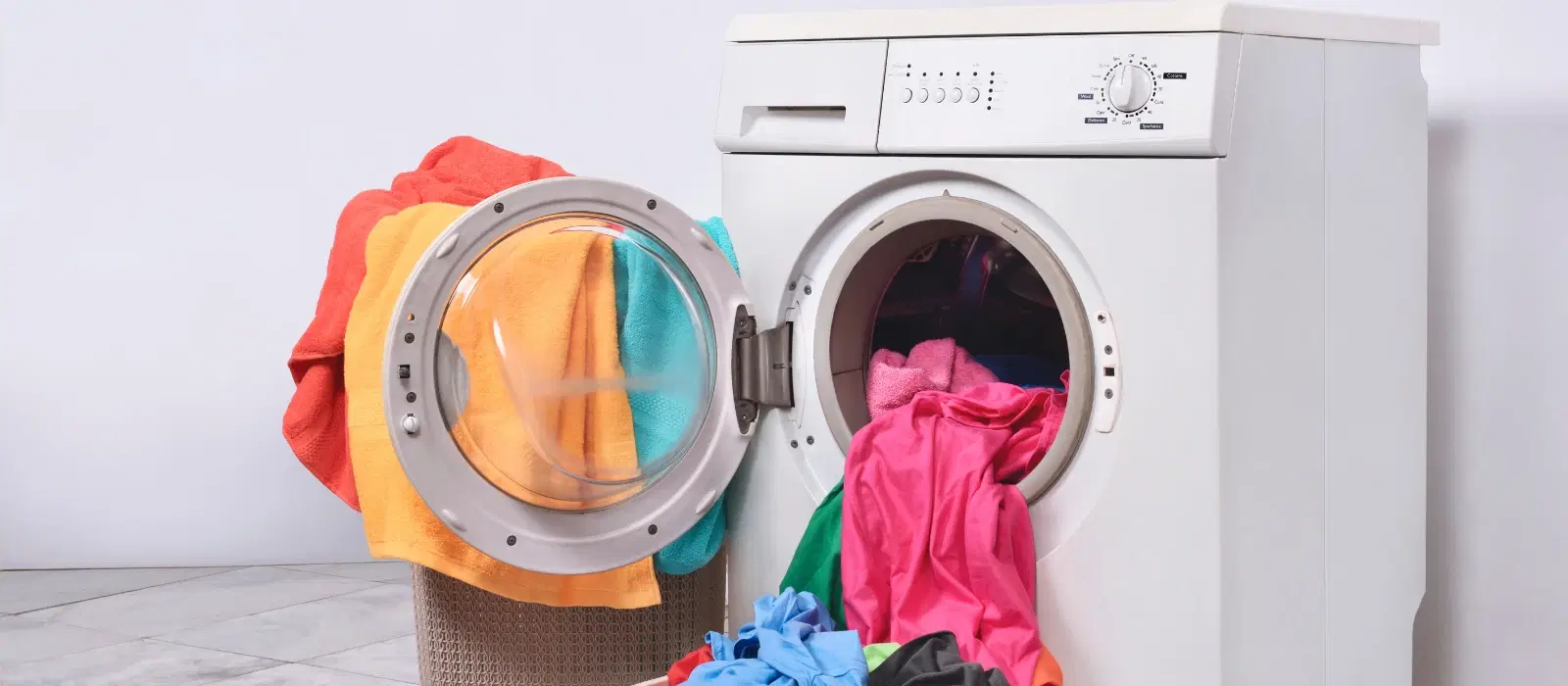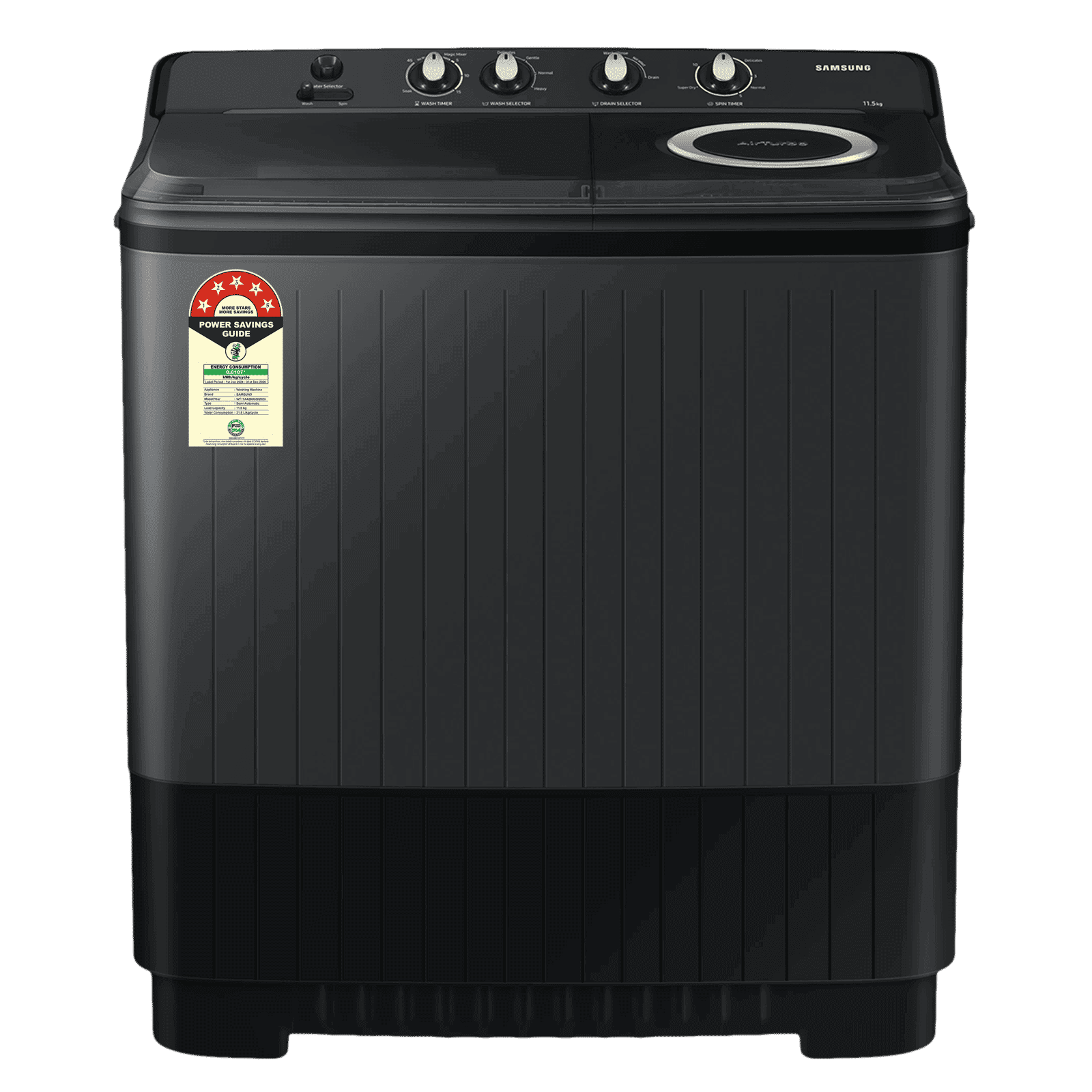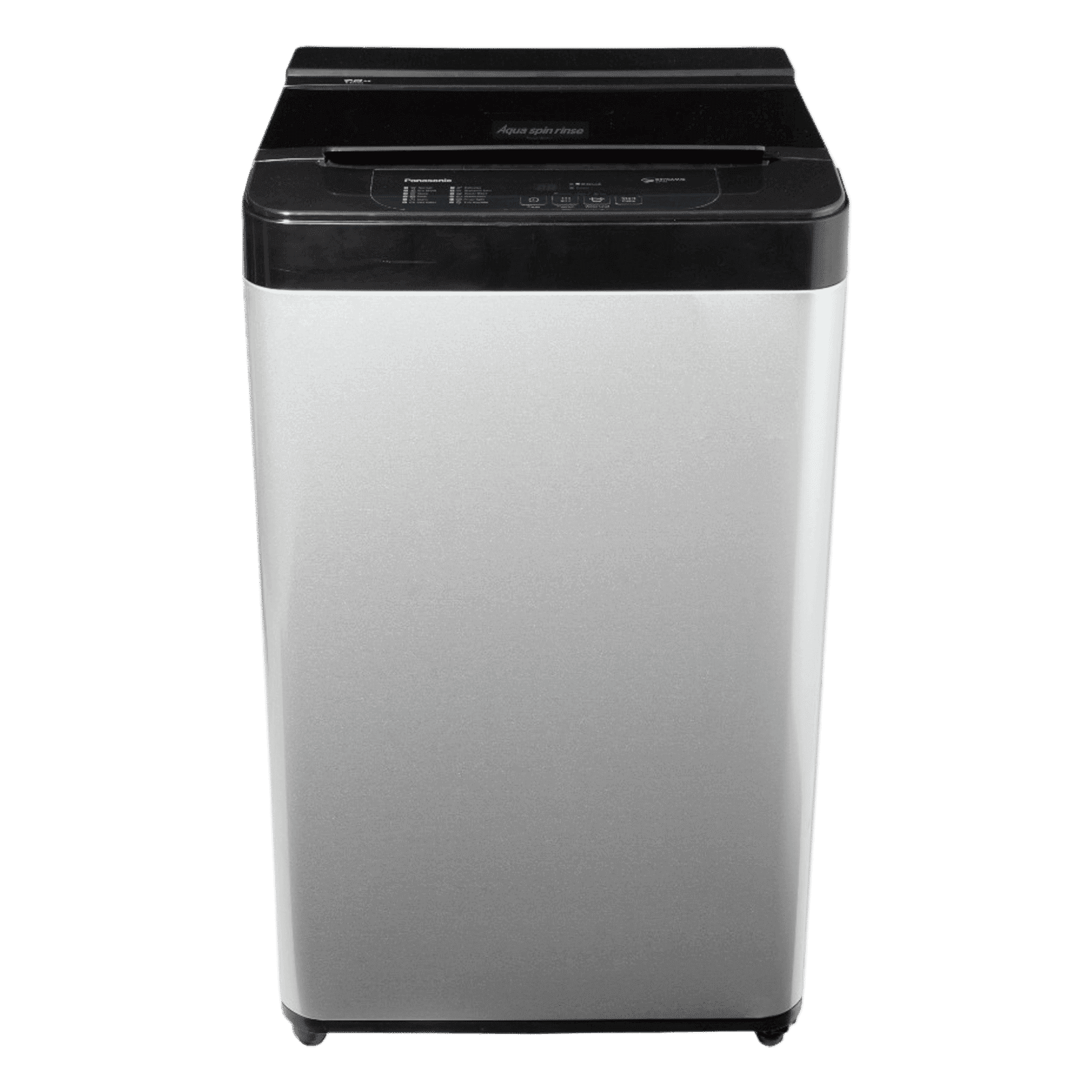
Home Appliances
•04 min read

Buy SAMSUNG 11.5 kg 5 Star Semi Automatic Washing Machine with Hexa Storm Pulsator (WT11A4260GD/TL, Dark Grey) online at best prices from Croma. Check product details, reviews & more. Shop now!
Ever wondered why your washing machine seems to take ages to complete a wash? Despite advances in technology, modern washing machines may have long cycle times that can leave you scratching your head. In this post, we explore the intricacies of washing machine cycle times, factors affecting them, and tips on how to make the most of your appliance.
Normal cycles vary depending on the model and the type of wash selected. For instance, a Quick Wash may take around 30 minutes while a Heavy Duty or Sanitize cycle can extend beyond two hours. Front loaders and top loaders come with distinct cycle durations since their design and technology differ. The Quick Wash is perfect for lightly soiled garments, whereas cycles intended for heavily soiled loads understandably require extra time.
Several factors influence wash times. The size of the load and the types of fabrics being washed play significant roles. Modern machines assess these variables by using sensors to measure the weight, water levels, and even the degree of soil in your laundry. Additionally, water temperature and specific cycle settings can change the duration of the wash. This approach ensures optimal cleaning while safeguarding your fabrics.
The cleaning process in washing machines is methodical.
Initially, sensors determine the load size and level of dirt, followed by the dispenser releasing the correct amount of detergent. The wash begins with a pre-soak, then proceeds to the main wash where the machine rotates and gently agitates the load. After a careful rinsing phase, the machine starts the spin cycle to remove excess water. Modern machines are designed to handle this process efficiently by adjusting cycle times based on the needs of your load. Interestingly, many models may extend the time taken to ensure optimum cleaning performance.
While it may seem frustrating to wait, there is a good reason behind longer cycles: efficiency. Today’s washing machines are built to conserve water and energy. They employ advanced algorithms that prioritise thorough cleaning over quick turnaround times. Energy-efficient models often use less water, which means they need a longer wash to achieve the same level of cleanliness as older models that used more water. This environmentally friendly approach ensures that every cycle is both gentle on your garments and on nature.
Insight Corner: Modern washing machines often take longer because they use less water and energy, relying on advanced algorithms to ensure thorough cleaning while being eco-friendly.

Buy IFB 6.5 kg 5 Star Fully Automatic Top Load Washing Machine (TL650MG1, Powered By AI, Medium Grey) online at best prices from Croma. Check product details, reviews & more. Shop now!
Numerous factors might contribute to longer wash times. Overloading the machine can confuse sensors that determine the washing needs, inadvertently extending the cycle. Other issues include using incorrect settings for the load at hand or a potential malfunction where components do not operate correctly. Certain settings, particularly those like Heavy Duty or Sanitize, are designed to extend wash cycles deliberately to ensure that even the most stubborn stains are dealt with effectively.
There are practical ways to assist your washing machine in performing at its best. Firstly, ensure that you do not overload the appliance; this helps sensors work more efficiently. Choose the most appropriate wash cycle based on the fabric type and soiling degree. Regular maintenance, such as cleaning filters and checking drum rotation speeds, also contributes to a more efficient wash. These simple steps can optimise washing machine performance without compromising the superior cleaning results that modern technology promises.
Today’s washing machines come with a variety of cycle options. From Quick Wash, optimized for lightly soiled items, to Heavy Duty for more intensive cleaning tasks, each setting is designed with a specific purpose. The settings address the type of fabric and the level of soiling; for example, a Delicate cycle is gentle on fine fabrics, while a Sanitize cycle uses additional heat to neutralise bacteria. By selecting the correct setting, you can help manage both the cycle duration and the overall wear and tear on your clothes.
The answer is often yes. Modern washing machines have integrated features such as Delay Start and Eco Mode, which can extend cycle times. These features allow consumers to benefit from greater energy efficiency and water conservation. Although they may result in longer washing times compared to older machines, they deliver a deeper clean, protect fabric health, and help lower your environmental impact. The trade-off here is an investment in quality and sustainability.
Typically, cycles range from about 30 minutes for a Quick Wash to over two hours for heavier cycles such as Heavy Duty or Sanitize.

Buy Panasonic 7 kg 5 Star Fully Automatic Top Load Washing Machine (C3 Series, NA-F70C3LRB, Active Foam System, Sizzling Silver) online at best prices from Croma. Check product details, reviews & more. Shop now!
This can occur when the settings like Heavy Duty or Sanitize are selected, particularly if the machine’s sensors determine that the load is large or heavily soiled.
Select a shorter cycle like Quick Wash, avoid overloading the machine, and ensure you use the correct settings for the type of load being washed.
Modern washing machines prioritise cleaning efficiency, water conservation, and fabric care; these factors can result in extended cycle times.
Yes, energy-efficient models commonly take longer because they use reduced water and energy, and rely on advanced processes to deliver a thorough clean.
While the extended cycle times might seem inconvenient at times, it is important to recognise that every minute spent in the wash contributes to a cleaner, well-cared-for load. Embracing these technological advances means you benefit from reduced water consumption and energy usage, resulting in a more eco-friendly household. For those who value seamless performance and effective cleaning, planning your laundry around these cycles with a little patience is key.
Remember, every washing machine is designed to maintain both the longevity of your clothes and the efficiency of its process. A well-maintained machine, used with the appropriate settings, can transcend the simple act of cleaning to provide a reliable, eco-friendly service time after time.
As you continue to navigate daily chores, consider the smart choices that modern technology offers. Whether you are upgrading your appliance or fine-tuning its settings, such knowledge empowers you to make decisions that align with both your lifestyle and sustainability goals. Moreover, when you shop for home appliances through platforms like Tata Neu, you also earn NeuCoins rewards with every purchase. These rewards help you save smartly while enjoying the convenience and trust of a platform that puts customer experience first.
In summary, long washing cycles are not merely a matter of inefficiency; they are a reflection of advanced technology dedicated to conservation, optimal cleaning, and fabric care. By understanding why your washing machine takes as long as it does and learning to adjust your washing habits, you can continue to enjoy excellent laundry results without compromising on environmental responsibility or fabric longevity.